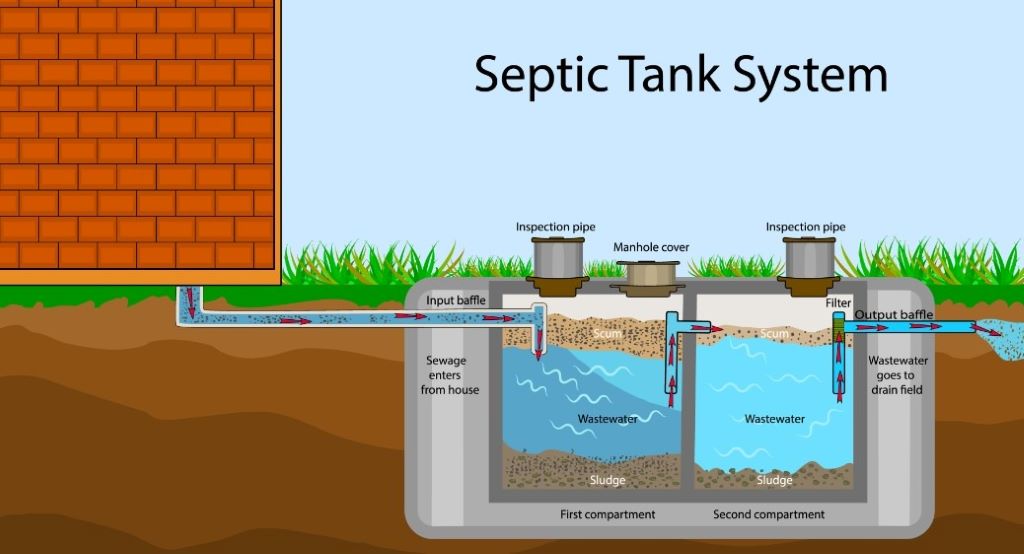Septic System Maintenance 101: What Every Homeowner Should Know

Key Takeaways:
- Routine maintenance is crucial to prevent system failure and extend the life of your septic system.
- Professional services are essential for tasks such as septic tank pumping and inspections.
- Understanding the basics of your septic system helps identify early warning signs of problems.
- Avoid DIY approaches to mitigate the risk of damage and ensure compliance with local regulations.
Introduction
For many homeowners, the septic system remains an unseen yet vital component of home infrastructure. Often tucked away and forgotten, it plays a crucial role in managing household waste. Yet, septic systems can lead to costly repairs and potential environmental hazards without proper maintenance. This guide aims to give homeowners the necessary knowledge to maintain their septic systems effectively.
Understanding Your Septic System
Septic systems are engineered to manage and process waste generated from the residence. They consist of a tank and a drainage area. Wastewater enters the tank, where solids accumulate at the bottom and start to break down. The liquid then flows into the drain field, where natural filtration through the soil further purifies it. Understanding this process underscores the importance of regular septic services, ensuring everything operates seamlessly. Neglecting routine maintenance can lead to system backups, foul odors, and costly repairs. Regular septic services help detect issues early, extend the system’s life, and protect your property and the environment.
Importance of Regular Septic Pumping
Regular septic pumping is critical for maintaining the functionality of your septic tank. Over time, solids accumulate and form sludge at the bottom of the tank. If left unchecked, this can overflow, causing system backups and failures. Usually, a septic system ought to be pumped every three to five years, although this may differ depending on tank size and household usage. Ensuring that a certified professional handles septic pumping is crucial, as they have the necessary expertise and equipment to perform the task safely and effectively, guaranteeing the ongoing reliability of your system.
Knowing When to Call the Professionals
While homeowners can conduct some basic maintenance tasks, relying on professionals for comprehensive inspections and significant repairs is essential. Septic system professionals bring specialized knowledge and tools to assess and fix issues that may not be apparent to untrained eyes. From routine inspections to intricate repairs, their expertise ensures that your system complies with all local regulations and remains in peak condition. Attempting to handle these responsibilities independently may result in misdiagnoses and additional complications, resulting in more significant issues in the future.
Identifying Warning Signs of Septic System Problems
Identifying early warning signs of problems can save you from costly repairs. Common indicators of septic issues include slow drains, unpleasant odors emanating from the drainage area, unusually lush grass over the drain field, or pooling water. If you notice any of these signs, it’s vital to contact a professional immediately.
Avoiding the DIY Approach
While the allure of saving money through DIY septic maintenance might be tempting, it often leads to more harm than good. Septic systems are complex environments that require specialized understanding to manage safely and efficiently. Moreover, improper handling during DIY attempts can cause severe damage and violate local regulations, leading to fines and further expenses. Engaging a professional ensures that your system is evaluated and serviced correctly, minimizing risks to your property and the environment.
Conclusion
Regular maintenance and professional involvement ensure lasting health and efficiency for your septic system. By comprehending the mechanics of your system, following suggested pumping timetables, and seeking the knowledge of experts, you safeguard your investment and enhance a healthier living space. Engaging in these steps will assist you in reducing risks, preventing expensive repairs, and extending your septic system’s lifespan.
